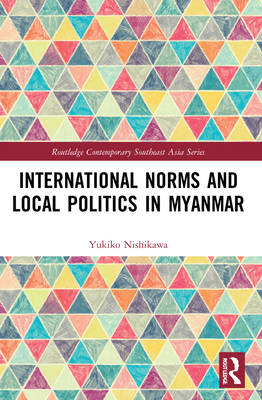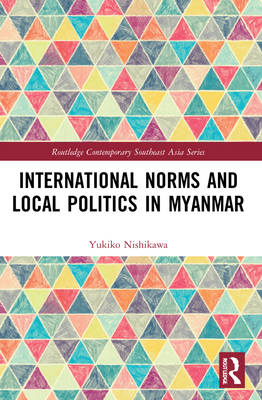
- Afhalen na 1 uur in een winkel met voorraad
- Gratis thuislevering in België vanaf € 30
- Ruim aanbod met 7 miljoen producten
- Afhalen na 1 uur in een winkel met voorraad
- Gratis thuislevering in België vanaf € 30
- Ruim aanbod met 7 miljoen producten
Omschrijving
Nishikawa explores how international norms have been adopted in the local context in Myanmar to project a certain international image, while in fact the authorities are exploiting these norms to protect their own interests.
In the liberal international world order promoted since the end of the Cold War, democracy, rule of law and human rights have become key components in state and peace-building around the world. Many donor governments and international organisations have promoted them in their aid and assistance. However, the promotion of these international norms is based on a flawed understanding of sovereignty and the world. For this reason, the enforcement of these international norms in Myanmar not only fails to protect vulnerable people but also, in some instances, exacerbates the situation, thereby generating critical insecurity to the most vulnerable people.
A vital resource for scholars of Myanmar's politics, as well as a valuable case study for International Relations scholars more broadly.
Specificaties
Betrokkenen
- Auteur(s):
- Uitgeverij:
Inhoud
- Aantal bladzijden:
- 172
- Taal:
- Engels
- Reeks:
Eigenschappen
- Productcode (EAN):
- 9781032213668
- Verschijningsdatum:
- 25/09/2023
- Uitvoering:
- Paperback
- Formaat:
- Trade paperback (VS)
- Afmetingen:
- 156 mm x 234 mm
- Gewicht:
- 267 g

Alleen bij Standaard Boekhandel
Beoordelingen
We publiceren alleen reviews die voldoen aan de voorwaarden voor reviews. Bekijk onze voorwaarden voor reviews.











